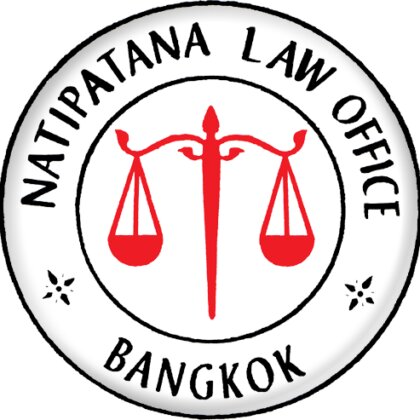Best Immigration Lawyers in Phuket
Share your needs with us, get contacted by law firms.
Free. Takes 2 min.
List of the best lawyers in Phuket, Thailand
Legal guides written by SIAM LEGAL INTERNATIONAL:
- Defamation Laws in Thailand: Criminal Charges and Civil Suits
- The State of Thailand’s Long-Term Resident (LTR) Visa Program in 2025
- The Penalties Of Not Filing Your Income Tax Return As A Foreigner In Thailand
Thailand Immigration Legal Questions answered by Lawyers
Browse our 8 legal questions about Immigration in Thailand and read the lawyer answers, or ask your own questions for free.
- URGENT HELP NEEDED
- An Iranian woman, 22 y.o, lost her passport and got caught by the police on December 15. She will be deported. If she is deported to Iran, she has a death sentence in Iran and will be executed. She did not do anything illegal during her stay except losing her...
-
Lawyer answer by Ascendance International Consulting (A-I-C)
International law (the 1951 Refugee Convention and the principle of non-refoulement) bars any country from returning a person to a place where they face a real risk of death; the Iranian woman can immediately request a stay of removal and...
Read full answer - Company transfer and name change
- I would like to know whether we can transfer the company to another person and change the name of owner? What is the procedure and total amount required for new company setup for one person visa
-
Lawyer answer by SORASAK LAWFIRM
Dear Sir,We would like to provide the following information:You may transfer company ownership by transferring shares to change the shareholders, and by changing the company director.Please note that, in order to be eligible for a Non-B visa, the company you...
Read full answer - Can you assist with getting a one year special visa in Thailand?
- We are a married American couple who have been seeking medical help for my husband in Thailand. His treatment will be ongoing, so we thought that we would get visas for a longer stay than the 3-month medical visa for him or the 60-day tourist visa for me. A one-year... Read more →
-
Lawyer answer by Thailand Family Law Partners (TFL)
There are many options available to you. The other firm mentioned the new DTV, and there are other options available, such as changing your visa to a retirement visa, LTR visa, or extending your current visas through an extension of...
Read full answer
Thailand Immigration Legal Articles
Browse our 20 legal articles about Immigration in Thailand written by expert lawyers.
- The State of Thailand’s Long-Term Resident (LTR) Visa Program in 2025
- Various changes have been made in 2025 to Thailand’s Long-Term Resident (LTR) Visa Program to make it easier to qualify for and acquire. This is part of the government’s plan to streamline the application process for new applicants, increasing the applicant pool and attracting more highly qualified foreigners to Thailand. ... Read more →
- TM6 (TDAC) Explained: How the New Thailand Digital Arrival Card Works
- Thailand’s immigration system will see a major update in 2025 with the return of the TM6 form in a fully digital format, now called the Thailand Digital Arrival Card (TDAC). This new system is designed to improve security, speed up entry procedures, and reduce wait times at immigration checkpoints.What Was... Read more →
- Recent Updates to Thailand’s Long-Term Resident (LTR) Visa and SMART Visa Programs
- Recent Updates to Thailand’s Long-Term Resident (LTR) Visa and SMART Visa ProgramsThailand’s Cabinet has approved changes to the Long-Term Resident (LTR) Visa program, aimed at attracting skilled professionals, investors, and their families. These updates are designed to support Thailand’s long-term economic growth by encouraging foreign investment and talent. The new... Read more →
About Immigration Law in Phuket, Thailand
Phuket, Thailand, renowned for its stunning beaches and vibrant culture, is also a melting pot of expatriates and tourists from all around the globe. Immigration law here is governed by the national policies set forth by the Thai government but has unique local nuances that cater to the ever-evolving demographics of Phuket's resident population. Understanding immigration law in Phuket is crucial for both short-term visitors and those looking to make the island a more permanent home. With a blend of regulatory requirements, immigration intricacies involve navigating visas, work permits, and residency statuses.
Why You May Need a Lawyer
There are numerous scenarios where individuals may find themselves in need of legal assistance regarding immigration in Phuket. Common situations include:
- Visa Rejection: If your visa application is rejected, a lawyer can help you understand the reasons and guide you in reapplying or appealing the decision.
- Work Permits: Navigating the complexities of obtaining or renewing work permits can be challenging, especially for those unfamiliar with local regulations.
- Permanent Residency: For those seeking to establish a more permanent residence, meeting all legal criteria is essential, and a lawyer can streamline this process.
- Legal Disputes: Any legal disputes that arise from immigration-related issues often require professional legal counsel to effectively resolve.
- Compliance: Ensuring compliance with local immigration laws to avoid fines or penalties is where legal expertise becomes invaluable.
Local Laws Overview
Immigration laws in Phuket are in alignment with the national framework provided by the Kingdom of Thailand, but certain local aspects are important to consider:
- Visa Types: There are multiple types of visas such as tourist, student, retirement, and work visas, each with specific criteria.
- Length of Stay: The length of stay varies according to the visa type and requires careful monitoring to avoid overstaying, which can lead to significant penalties.
- Reporting Requirements: Every foreign national must report their address to the local immigration office every 90 days.
- Employment Laws: Employment without the appropriate visa and work permit is illegal and can result in deportation.
- Marriage and Citizenship: There are specific regulations for those seeking residency through marriage or citizenship processes.
Frequently Asked Questions
What types of visas are available for someone wanting to stay in Phuket?
Several visas are available, including tourist visas, non-immigrant visas (for work or business), student visas, and retirement visas.
How can I convert a tourist visa to a work visa?
Converting a tourist visa to a work visa involves applying for a non-immigrant B visa and securing a work permit from your employer with the help of legal guidance.
What are the penalties for overstaying a visa in Thailand?
Overstaying your visa can result in fines, detention, and deportation, with the severity increasing based on the duration of the overstay.
How can I apply for permanent residency in Phuket?
Applying for permanent residency involves meeting specific criteria, including a continuous stay in Thailand, financial stability, and knowledge of the Thai language; legal assistance can facilitate this process.
What is the process for reporting my stay in Thailand every 90 days?
Foreigners need to report their stay every 90 days at the local immigration office or through online platforms. Lawyers can provide assistance in ensuring timely compliance.
Can I work in Thailand on a tourist visa?
No, working on a tourist visa is illegal and can lead to fines, cancellation of the visa, and possible deportation.
What do I do if my visa application is denied?
If your visa application is denied, seek legal advice immediately to address the reasons for the denial and consider filing an appeal or re-application.
How long does it take to process a visa application?
Processing times vary by visa type and complexity, ranging from a few days for tourist visas to several months for work permits or permanent residency.
What is required for a marriage visa in Thailand?
A marriage visa requires providing proof of marriage to a Thai national, as well as meeting financial requirements and passing certain legal checks.
How can I bring my family to Phuket on legal grounds?
Specific dependent visas are available for family members, and legal assistance can guide you through meeting the necessary requirements.
Additional Resources
There are several resources available for individuals seeking immigration information and assistance in Phuket:
- Phuket Immigration Office: The primary government body handling visa and immigration-related services.
- Thai Ministry of Foreign Affairs: Offers comprehensive information on visa categories and requirements.
- Expatriate Organizations: Groups such as the Phuket Expat Association can provide community support and advice.
- Legal Aid Services: Non-profit organizations that provide free or discounted legal aid to those in need of immigration assistance.
Next Steps
If you need legal assistance with immigration in Phuket, consider the following steps:
- Consulting with a certified immigration lawyer in Phuket to assess your situation and offer professional guidance tailored to your needs.
- Gathering all relevant documents and personal information to facilitate a smooth legal consultation.
- Considering legal advice before submitting any applications or responses to ensure compliance and increase the likelihood of a favorable outcome.
- Regularly checking official government websites or contacting local immigration offices for updates on immigration laws that may affect your status.
Lawzana helps you find the best lawyers and law firms in Phuket through a curated and pre-screened list of qualified legal professionals. Our platform offers rankings and detailed profiles of attorneys and law firms, allowing you to compare based on practice areas, including Immigration, experience, and client feedback.
Each profile includes a description of the firm's areas of practice, client reviews, team members and partners, year of establishment, spoken languages, office locations, contact information, social media presence, and any published articles or resources. Most firms on our platform speak English and are experienced in both local and international legal matters.
Get a quote from top-rated law firms in Phuket, Thailand — quickly, securely, and without unnecessary hassle.
Disclaimer:
The information provided on this page is for general informational purposes only and does not constitute legal advice. While we strive to ensure the accuracy and relevance of the content, legal information may change over time, and interpretations of the law can vary. You should always consult with a qualified legal professional for advice specific to your situation.
We disclaim all liability for actions taken or not taken based on the content of this page. If you believe any information is incorrect or outdated, please contact us, and we will review and update it where appropriate.
Browse immigration law firms by service in Phuket, Thailand
Phuket, Thailand Attorneys in related practice areas.

















